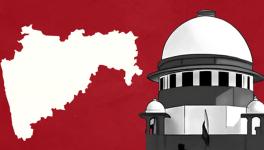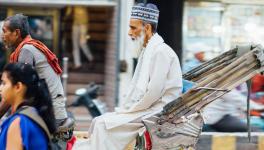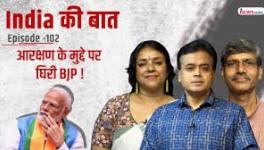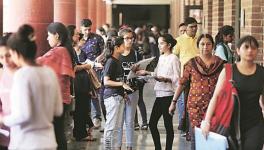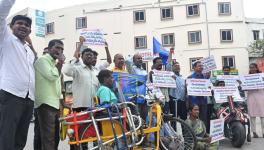NEET: OBC Reservation in State MBBS Colleges Remains a Dream This Year Too

Image Courtesy: iStock
The newly appointed Minister of Education Dharamender Pradhan on July 12 declared the dates of the National Eligibility and Entrance Test (NEET), a mandatory country-wide test for admissions in MBBS and BDS courses.
However, the declaration this year, too, came with the clear message that the national test would be conducted without implementing the reservation norms for other backward classes (OBC) capped at 27%. The move by the Ministry of Education is estimated to have deprived 11,027 aspirants belonging to the OBC category from the admissions process in medical and non-medical colleges within a span of four years across the country.
OBC Reservation and Implementation
Initiated under the Janta Party government in 1979 post calls for extending affirmative action programmes to left out socially and economically backward castes, the government of India instituted a commission under parliamentarian B P Mandal to look into the demands.
After looking into the deprivation faced by these communities, Mandal contended that the population of OBCs is close to 52% of the entire population and recommended 27% reservation in the jobs offered by central government and seats in educational institutions run by it for these communities.
Although the reservations in jobs under central government began in 1992, the students belonging to the OBCs had to wait for long to secure admissions. After a long legal battle, the Supreme Court reaffirmed the reservation for these castes in 2006 with the condition that the aspirants’ families should not earn more than Rs 8 lakh per annum.
However, the implementation of 27% reservation has been tedious in the All India Quota seats separately earmarked in the institutes run by state government. To understand the OBC reservation in medical institutions run by state governments, one has to revisit the Supreme Court order in 1984.
Also read: TN: Guv’s Delay in Approving 7.5% Reservation in Medical Admissions for Govt. Students Sparks Row
The directions of the apex court mandated that all states will have to dedicate 15% seats in undergraduate and 50% post graduate seats in medical and dental colleges for the central pool and rest going to the state pool. The students are given seats in the central pool after counselling by Directorate General of Health Services (DGHS).
After another legal battle, the Supreme Court in 2009 ruled that states could implement reservation norms in their pool, too, with 15% and 7.5% seats for Scheduled Castes and Scheduled Tribes, respectively. Interestingly, there was no mention of OBCs in the order. Later, the Medical Council of India implemented its regulations in 2010 with a national level test for admissions in medical and dental courses. In 2017, National Eligibility Cum Entrance Test was implemented fully.
Over 11,000 Seats Lost for OBC Students
All India Federation of Other Backward Classes Employees Welfare Association, a body representing OBCs across country, has alleged that the continuous scuttling of benefits has resulted in the loss of 11,027 seats which went to the unreserved categories from 2017. Putting forward a detailed overview, the association has claimed that the community lost out 7,307 seats and 3,207 seats respectively in post graduate and under graduate medical courses alone in a span of four years. Similarly, 262 seats and 251 seats seats were diverted to unreserved categories in PG dental and undergraduate dental courses, respectively.
Talking to NewsClick over phone, G Karunanidhy, general secretary of AIOBC, said that the government and its officials are delaying the implementation even after the Madras High Court has given clear options for further process.
Also see: Why is the Modi Govt. Adamant on Conducting JEE-NEET in September?
He said, “In October last year, the Madras High Court gave two options to implement the quota. One, the universal quota could be universally applied. Second, the states could implement it as per their population. Now, the Centre has said that it will seek the opinion of the law ministry. The whole point remains that they do not want to implement it.”
He went on to state that the entire concept of NEET reeks of inequality and the central officials are not seeing the dangers associated with it. He said, “Although it claims that it is the eligibility test for future doctors but it is not. The entire pattern is designed in such a manner that the students should focus on memorising things, not learning. A student should pass with minimum number in an objective type paper and you are becoming a doctor! There are no method to check if the student has sound understanding of the subjects.”
“We got to know about a case from Punjab where a student has scored zero marks in chemistry and he qualified for NEET. Since it is an objective type exam, the students focus on cracking the paper through coaching. The fee for coaching is generally between Rs 2-3 lakh. Who can afford this much fee? Only rich and wealthy who generally belong to the upper castes. Now, these people generally do not join the government hospitals because they have already invested too much.,” he added.
Further, he pointed the implications of such a biased system, saying, “The grave implications, I believe, would be in the next 10 years when the government hospitals will not have enough doctors. Today, we have four doctors per thousand people in Tamil Nadu from where I hail. Four times more than the standard suggested by World Health Organisation and this is why we could run COVID-19 vaccination programme so smoothly. But it will not be available in the longer run and our 15,000 primary health centres will need doctors desperately. The reason is simple; the rich fled to private healthcare centres and the poor did not get a chance to study!”
On being asked about the reason why other North Indian states have not joined the struggle against NEET proactively with Tamil Nadu, he said, “I think North India is still missing its Periyar. The historical roots of movement for social justice has been quite strong. This is why we could fight it hard.”
Also read: Why Arguments Against Reservation are Flawed
Dilip Mandal, senior journalist, maintains that there are few points that must be observed closely with the whole episode. He told NewsClick over phone, “The official notification for NEET clearly states that the issue of reservation for OBCs in state colleges will only be settled after the judgement in Saloni Kumari case is delivered. If we look at the trajectory of the case, we find that there are more than 20 hearings in the case and it has also not been put on priority. So, the question remains for how long you will deny the reservations.”
Saloni Kumari, an MBBS aspirant, had asked the Supreme Court for its directions in ensuring 27% reservation in state medical colleges run by the Uttar Pradesh government in 2015. The case took the centre stage when the Centre convinced the Madras High Court that the apex court was hearing an identical plea regarding the implementation of OBC quota and a final decision should be taken only after the court delivers its judgement. The critics, however, argue that the case did not pose any legal challenge in implementing the quota nationwide in state medical colleges.
Mandal went on add, “The reservations are not essential for Indian society only because it provided some opportunities to the members of marginalised communities. It is also for including the diversity which in turn makes the society healthy.”
Get the latest reports & analysis with people's perspective on Protests, movements & deep analytical videos, discussions of the current affairs in your Telegram app. Subscribe to NewsClick's Telegram channel & get Real-Time updates on stories, as they get published on our website.










